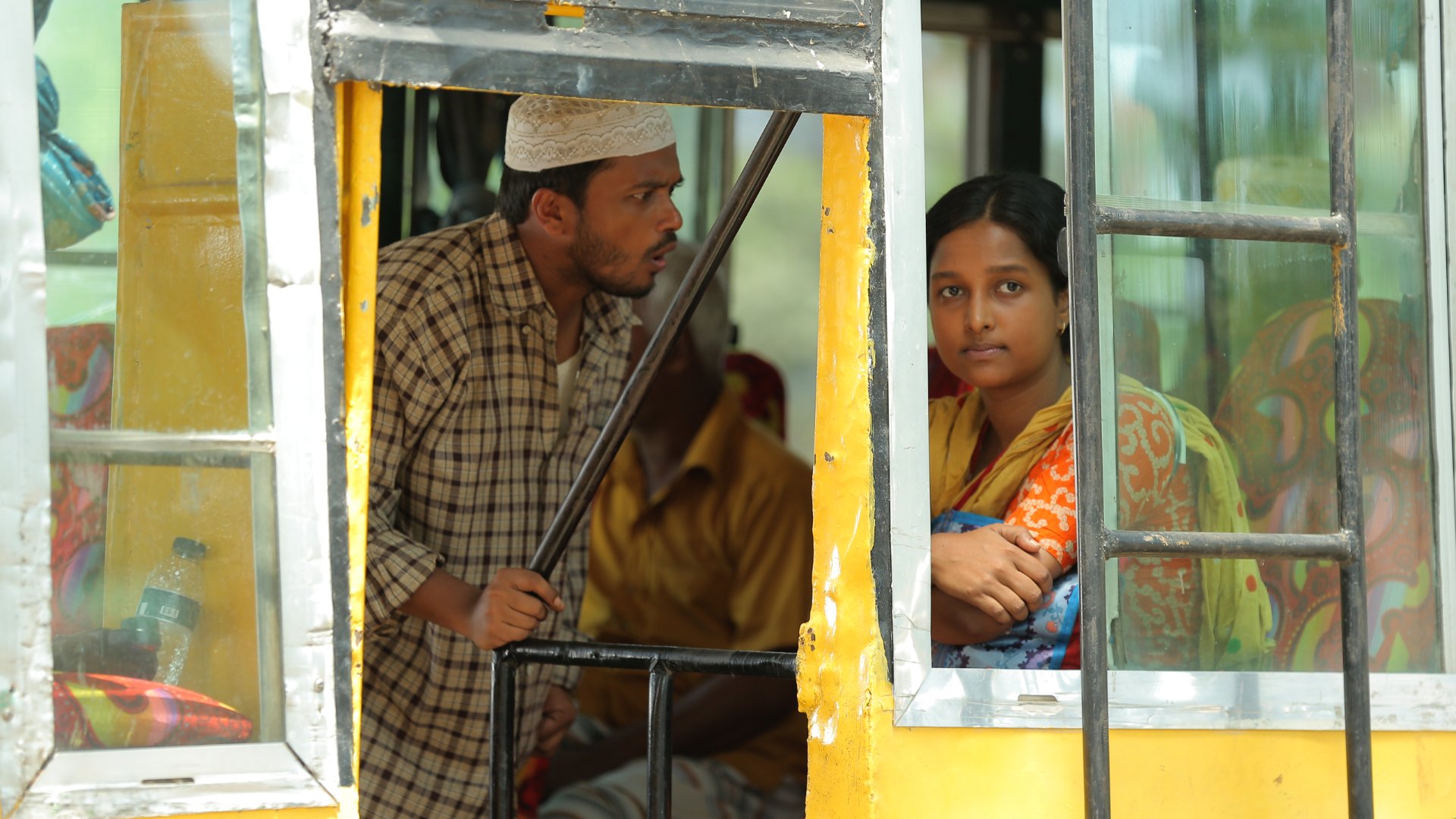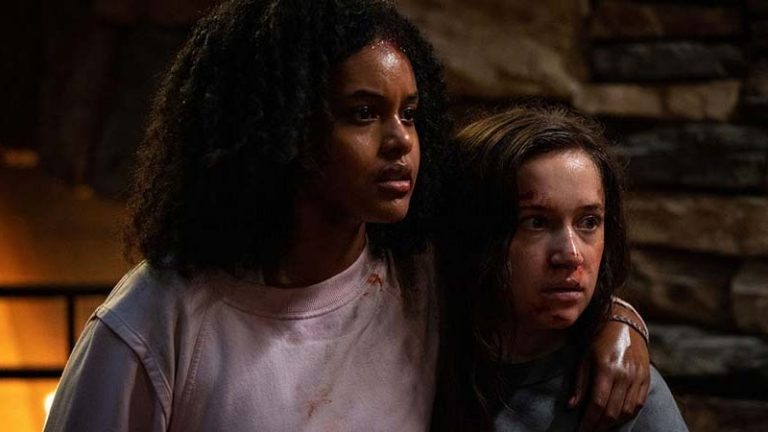We have seen this a million times before. A young adult living in a small town fleeing to the city for better chances but feeling just as lost and isolated to bring their purpose to fructification is such a tired storytelling beat that only a significant change in the narrative can help pull it out to focus. Bangladeshi filmmaker Amitabh Reza Chowdhury’s ‘Rickshaw Girl.’, which brings along a unique and desi setting, is not that film. While it tells a genuinely homegrown coming-of-age story, its inability to be true to its own voice – characters (no matter what social strata they belong to) talk in English and fall into an archetype – makes the story feel redundant and full of tropes.
The plot follows Naima (Novera Rahman), a young girl with an exceptional talent for making her canvas feel like it has come to life. Her paintings are exuberant, colorful, and full of life – the complete opposite of her actual living conditions. Her father is a rickshaw puller, and her mother is a maid. She, who is a school dropout, is a headstrong girl who tries her best to help run the family by ensuring she puts her talent to good use. However, when her father falls ill and her mother is forced to leave her job, Naima takes the leap. She runs to Dhaka – a city that she feels is the right place for dreamers, only to find that the skyscrapers and the extravagant magnetism of life there are only reserved for the higher echelons of society.
Isolation sets in, and Naima has to run away from her first job as a maid in a posh apartment. Next, she decides to be a rickshaw puller, but her being a girl is put in as a big question mark by the owners. So, desperate to make a living, she decides to cross-dress as a boy as she pulls the rickshaw, leading Naima on a path that feels like a straight line, but ends up presenting one conflict after the other.
Now, talking about the film itself, this is a novel story that director Amitabh Reza Chowdhury is trying to tell. It has important and essential themes of social inequality, class struggles, sexism, and identity, but they are presented in a narrative that follows the same tired beats that the genre is known for. Chowdhury doesn’t dig deeper into the conflicts presented here; he moves from one point to the other with an exasperating sprint from his protagonist. It doesn’t help that, despite Novera Rahman’s dedicated performance, she comes off as a character so half-baked and generic that you don’t feel anything for her.
Moreover, the way the narrative is pieced together doesn’t allow the filmmaker to easily switch between the realistic and the melodramatic, leading his story slowly inch toward misery porn. So, by the time you reach the eventual end of the tale, Rickshaw Girl has already drowned itself in a mess of forced accents and dialogue repetition. The insistence on making every single character speak in a dialect that is not usual to them never truly grounds this story and only leads it toward an inconsistent experience that aggressively grows stale as it moves forward.







![The Most Beautiful Boy in the World [2021]: ‘Sundance’ Review – The fading fallacy and ignorance of stardom](https://79468c92.delivery.rocketcdn.me/wp-content/uploads/2021/01/Bjorn_Keystill-768x513.jpg)

